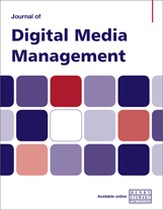From pixels to Python: When digital collections befriend artificial intelligence
Abstract
This paper explores the integration of artificial intelligence (AI) in digital archive practices and its alignment with the methodologies employed in digital scholarship generally. The authors emphasise that AI is an extension of the ways existing technological tools and software are used to enhance workflows, manage data and promote overall accessibility. Various applications of AI in digital archiving are explored, including automated file management, voice-to-text transcription, optical character recognition (OCR), facial recognition in digitised photographs, social media engagement and metadata creation for digital records. While acknowledging concerns regarding ethics, accuracy and privacy, the authors argue that embracing aspects of AI can lead to more efficient and enjoyable practices in digital archiving. Drawing from the core principles of digital humanities, the authors underscore the importance of conscientiously engaging with technology, allowing for a profound respect for and responsible use of AI. The paper concludes by emphasising the importance of maintaining critical inquiry, curiosity and ethical considerations when assessing and integrating AI tools into archival workflows, thus ensuring trustworthy and accessible records for future digital scholarship. Looking ahead, the paper offers insights into the prospective advancements of AI in digital archiving, highlighting its transformative potential in shaping future digital scholarship.
The full article is available to subscribers to the journal.
Author's Biography
Rebecca Bakker is the Digital Collections Librarian at Florida International University, where she is responsible for overseeing various digitisation projects and managing digital archiving initiatives. Rebecca also conducts workshops on digitisation skills, metadata management, oral history projects and content management. Rebecca acts as a liaison for community and university partners, collaborating on projects involving FIU’s digital and institutional repositories. She holds an MLIS degree from Florida State University.
Molly Castro is the Digital Humanities Librarian at Florida International University. Prior to that, she worked in digital collections for the Wisconsin Historical Society and the University of Wisconsin. She is passionate about teaching and learning, digital scholarship, and open and equitable access to information. She holds an MLIS from the University of Wisconsin-Madison.
